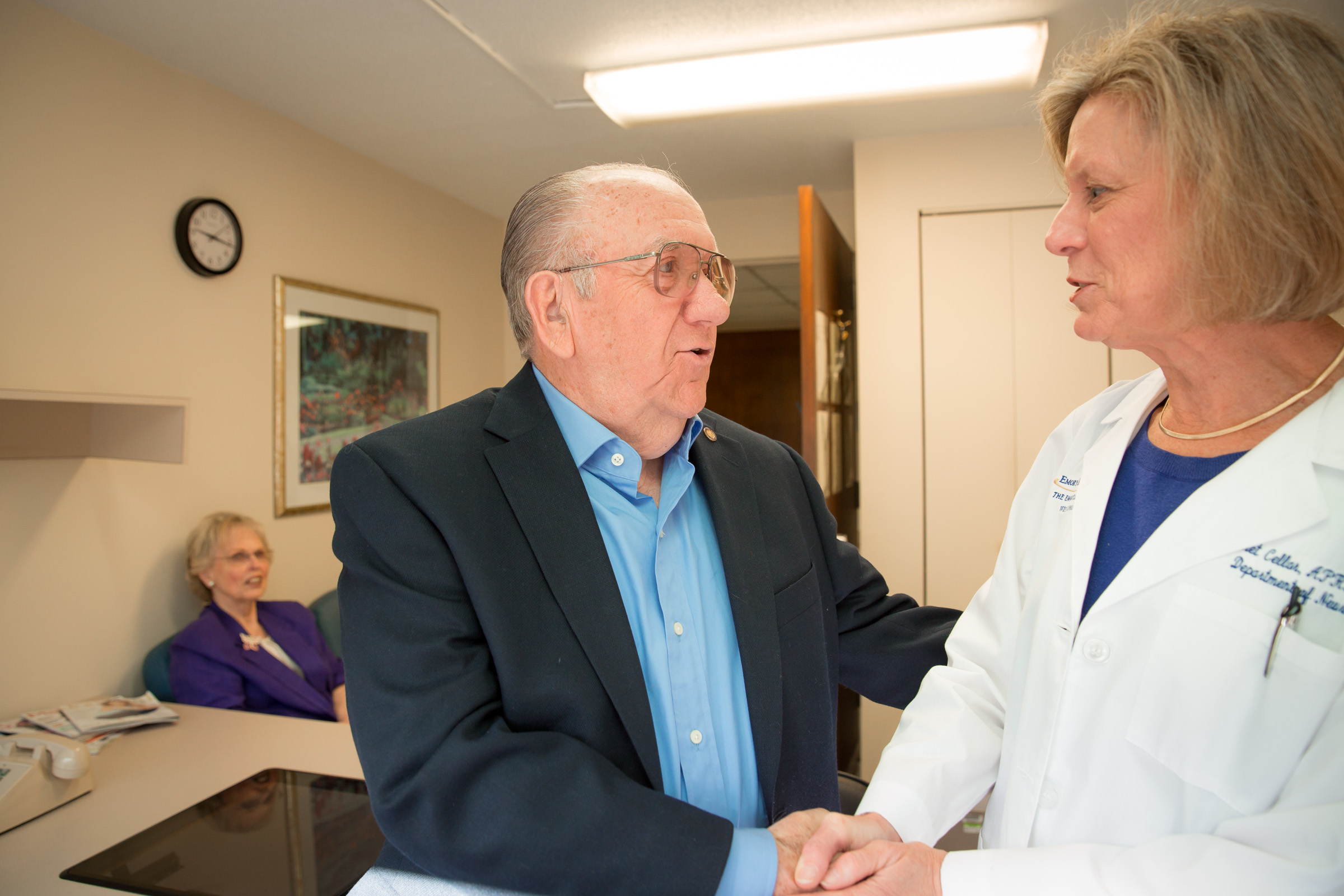Your New Role: Caregiver

Caring for a person with Alzheimer’s disease (Alzheimer's) is different than other caregiving. It is physically, emotionally, and financially challenging. At the Goizueta Alzheimer's Disease Research Center (ADRC), we are fortunate to have Dr. Ken Hepburn serve as one of our leaders. Dr. Hepburn and his colleagues have developed, and continue to develop, programs for caregivers of persons living with Alzheimer's or other dementing disorders. One such program is Savvy Caregiver: training for new caregivers facing an unfamiliar role.
Savvy caregivers learns to think and act like a nurse or doctor. They learn to step back and look at the scene coolly, figure it out, take charge, and decide what’s best to do in the situation. They see that, over time, the person with Alzheimer's or other dementia contribute less and less to solving everyday problems.
Access to caregiving strategies is important. Developing these strategies takes three things:
- See what the disease is doing to the person: what’s being lost.
- Have a realistic goal in mind: keep the person content and active; try not to focus on helping the person regain what’s been lost to the disease.
- Try out ways to work around the damage the disease is creating.
Caregiving for family and friends is a public health issue. The CDC provides current data about the status of caregivers.
Read the CDC brief "Caregiving for Family and Friends — A Public Health Issue."
Consider what Alzheimer’s disease does to thinking powers, for example: memory, reasoning, perception, language, judgment, etc. Abstraction is also a struggle, tihnking in terms of the past and future, of points in time, or in terms of relationships. But all thinking powers decline and become less reliable with Alzheimer’s.
So, given these declines, strategies are needed to keep the person content and to keep the caregiver from becoming frustrated. For example, caregivers soon understand that telling a person with Alzheimer’s on a Monday “We’re going to dinner at your brother’s on Thursday” can lead to problems. The person may no longer be able to organize the days of the week into any meaningful order; they may no longer understand “brother.” Confusion and repeated questions may follow, questions that can frustrate even the most patient caregiver.
The savvy caregiver will recognize that expecting the person to be able to make sense of a future event might be unrealistic. So they makes an adjustment, based on an assessment about what the person will likely understand. In this case, it might be best to say nothing about the dinner until Thursday when it is time to go. Then the caregiver would say, “We’ve been invited to Bob’s for dinner tonight. Let’s get ready so we can be on time.”
The starting place in savvy caregiving is to step back and process the situation at hand. Think through how the situation ended differently than expectated. Consider if expectations need to be lowered due to the mental decline experienced by the person livint with Alzheimer's. If so, see if you can think of a way to react differently next time.